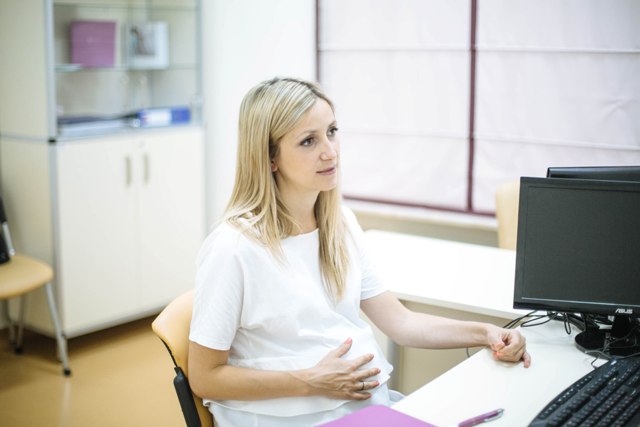Preeclampsia is a serious functional disturbance of the vital organs and systems of the expectant mother, a severe form of gestosis, followed by increased blood pressure, presence of protein in the urine, swelling, disruption of the central nervous system and several other vital organs. The concept of “preeclampsia” emerged in medical practice in 1996; previously, all the painful symptoms and quite dangerous conditions during the second half of pregnancy, were defined under the term “late toxicosis”. Unlike early toxicosis that in the majority of cases is not dangerous, preeclampsia is a rather serious complication of pregnancy and can possibly result in death for both the woman and the fetus.
Preeclampsia is a serious functional disturbance of the vital organs and systems of the expectant mother, often based on pre-existing diseases like hypertension, kidney, liver and biliary tract diseases, endocrine diseases. All causes of preeclampsia remain unknown, as there are exceptions when late preeclampsia occurs in women who, before the onset of pregnancy, did not have chronic diseases and any serious health problems.
Preeclampsia can express itself in different ways: in the form of very serious conditions, which are impossible to miss, and in the form of symptoms, which don’t seem dangerous at first, however, might be the signs of really big problems.
Don’t miss the following symptoms of preeclampsia:
- Swelling. This problem may or may not be related to preeclampsia. Quite often, minor edema of the lower extremities is normal and does not pose any danger to future mother. It is still advisable to discuss this issue with the doctor who observes the pregnancy. By no means, do not use self-treatment. This can hinder the problem, make it difficult to diagnose at an early stage and lead to disastrous consequences.
- High blood pressure and proteinuria (the presence of protein in the urine) – these symptoms should alert the doctor, as they require thorough examination, observation and, if necessary, emergency treatment.
- Convulsions of skeletal muscles. During seizures, blood pressure rises sharply, putting pregnant woman at risk of having a heart stroke. The child may be at risk as well, due to the possibility of premature placenta detachment.
- Preeclampsia can have mild, medium and severe forms. In severe cases, signs of central nervous system disorders are combined with the symptoms listed above: severe headaches, nausea, vomiting, epigastric pain, blurred vision, painful psychological reactions.
Timely diagnosis and timely treatment, which doctor prescribes strictly individually, basing on laboratory tests and instrumental studies, can keep this condition under control. Therefore, it is very important to visit doctor regularly and take all examinations according to his recommendations.
If doctor suspects preeclampsia, mild form will require home treatment, while more severe forms will require hospital stay. Within inpatient conditions, doctors will do everything possible to restore the function of vital organs and eliminate the risks for both mother and a child.
Sometimes, in the most severe cases, when treatment turns out to be ineffective and the condition of the patient is getting worse, doctors induce an early delivery. However, doctors use this extreme measure only in cases when all alternative potentialities of treatment have been exhausted.
Contact us!
Phone: +380 (44) 455 88 14; (044) 490-95-24
Viber: +380 (67) 333 88 14
Skype: ISIDA International
Address: 65, Vatslava Gavela Blvd, Kyiv, Ukraine



